
Updating the backwater reputation of coffee producers
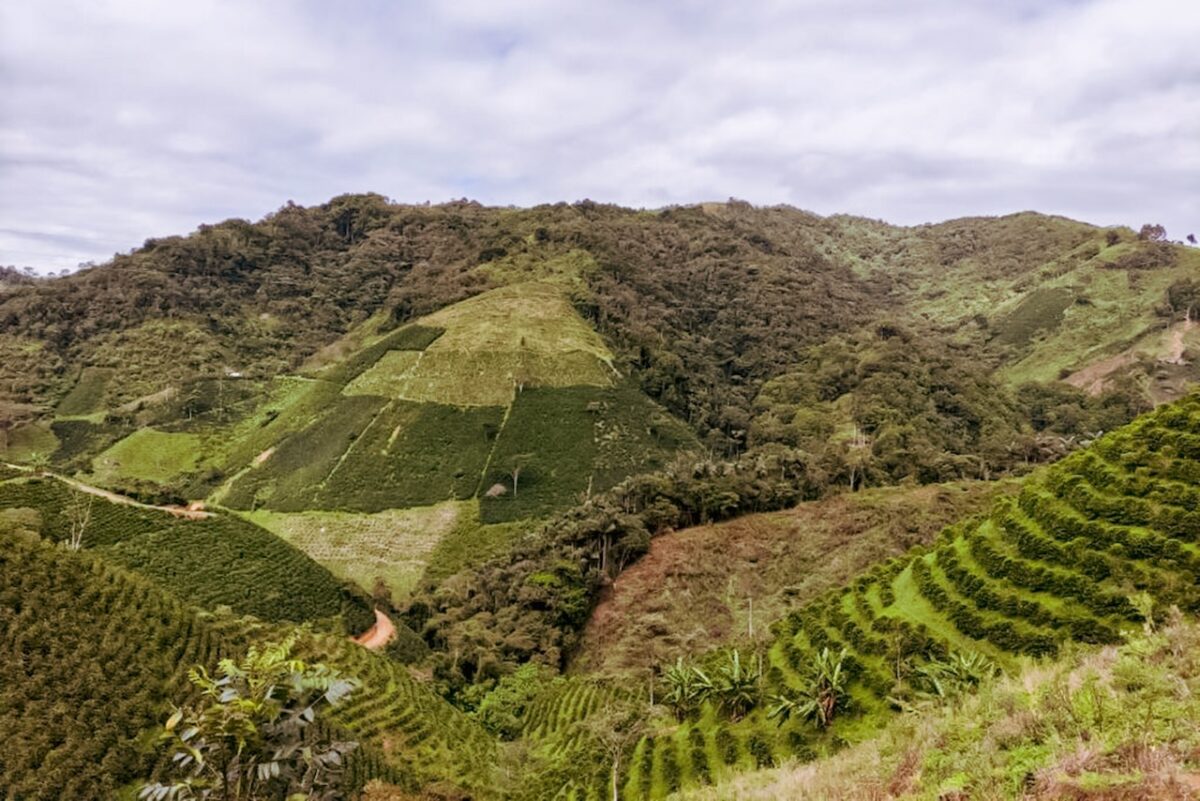
Jhoan Vergara comes from three generations of coffee producers. He took over the family farm in Acevedo, Huila Department of South Colombia, when his father retired in 2018. But instead of continuing with the high-volume production of Caturra coffee, Jhoan made the bold decision to diversify with a variety of specialty coffee crops.
At only 29 years old, Jhoan is not only a successful producer, he is also skilled in roasting and cupping. In 2019, he entered a major competition in Korea, taking on the double role of producer and roaster, and came out on top. As a leading figure in the local community, he organizes an annual cupping event to bring local producers together to share their experiences. We spoke to him to find out what it is that keeps him motivated and moving forward.
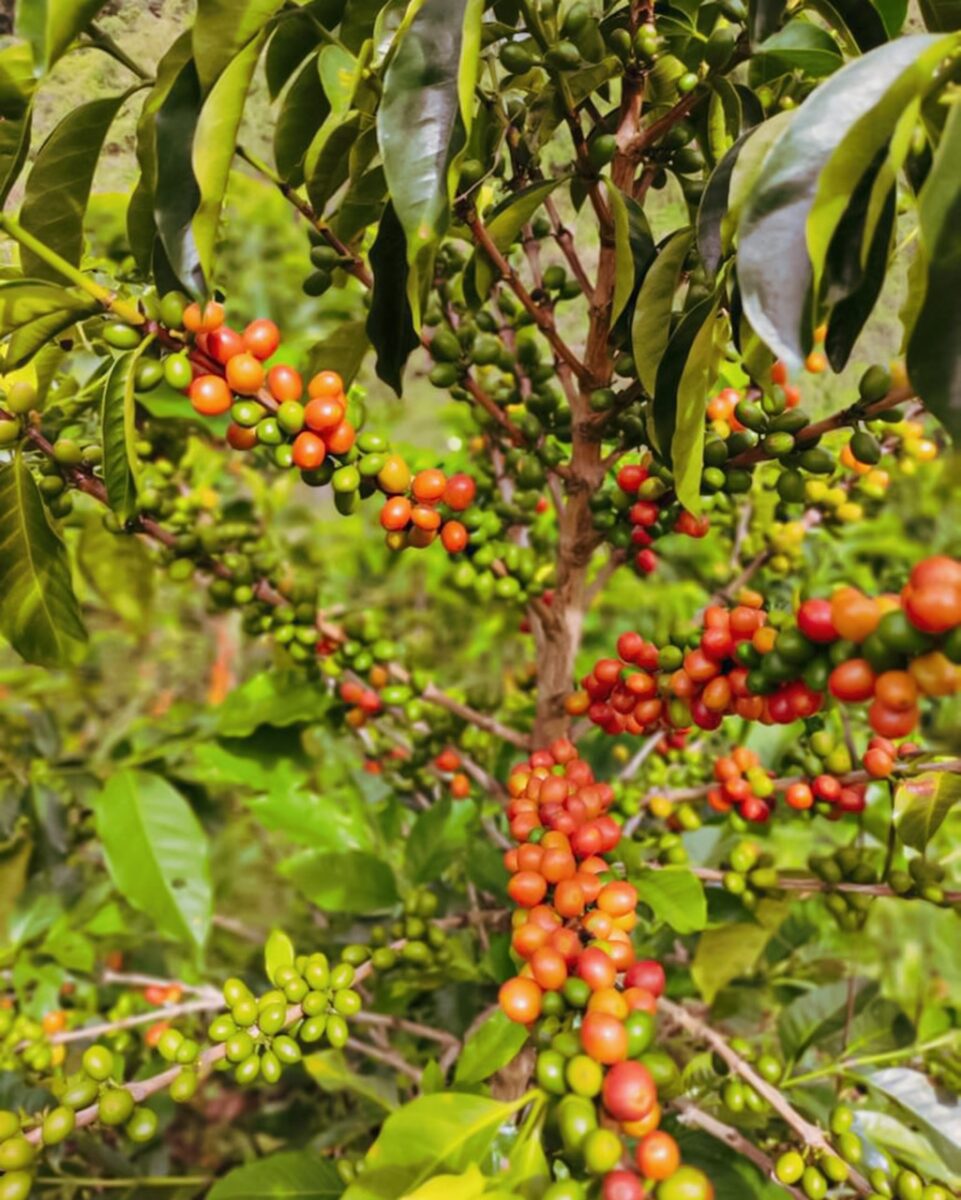
Variety with consistency
The Huila region lies at the base of the South ranges of the Andes. Blessed with fertile soil, it is one of the best places for growing coffee in Colombia, while the combination of warm southerly winds from the Amazon and cool sea breezes off the Caribbean add a unique sweetness. Cherries from this region are distinguished by a distinctive bright acidity that sets them apart from other coffees in Colombia.
When Jhoan took over his family’s three-generation old Las Flores farm at 24 years old, he decided to shift production from high-volume production, to growing a variety of specialty coffee with a focus on quality. His father was against the plan initially, but with his older brother in charge of processing, and his younger brother in charge of sales and human resources, he was gradually able to add more varieties including Pink Bourbon, Red Bourbon, Tabi, Java, and Maracaturra.
“We don’t have a coffee that can score 90 points (SCA rating), but we’re confident that if we can achieve 87, 88 points then we can make a sale. If we’d continued to exclusively produce Caturra, the farm might have disappeared by now. Even back when my father was in charge, I could sense that the landscape of the coffee industry was changing. And in this new era we need something that will make us stand out. My answer was variety.”
A stable production of superior quality coffee might give you a competitive edge, but when dealing with the complexities of producing a variety of different coffees, this is no easy task. It took Jhoan several attempts to find the right variety for the farm’s soil type and altitude. The processing too had to change. Previously, all cherries had been handled the same way but now each variety required its own processing conditions.
The real struggle was creating a method where they could have better control over the consistency of the profile. The farm has a microorganism lab where they can analyze the type and number of microorganisms on the cherries. This allows Jhoan to bring out the full potential of the variety and bring consistency to the profile.
“For the last three or so years, I’ve become more confident in trusting the processing methods without too much analyzing. We still make mistakes, but we’ve learned from our experiments and it means that we now have great consistency in our coffee. We always treat coffee as a fresh produce.”
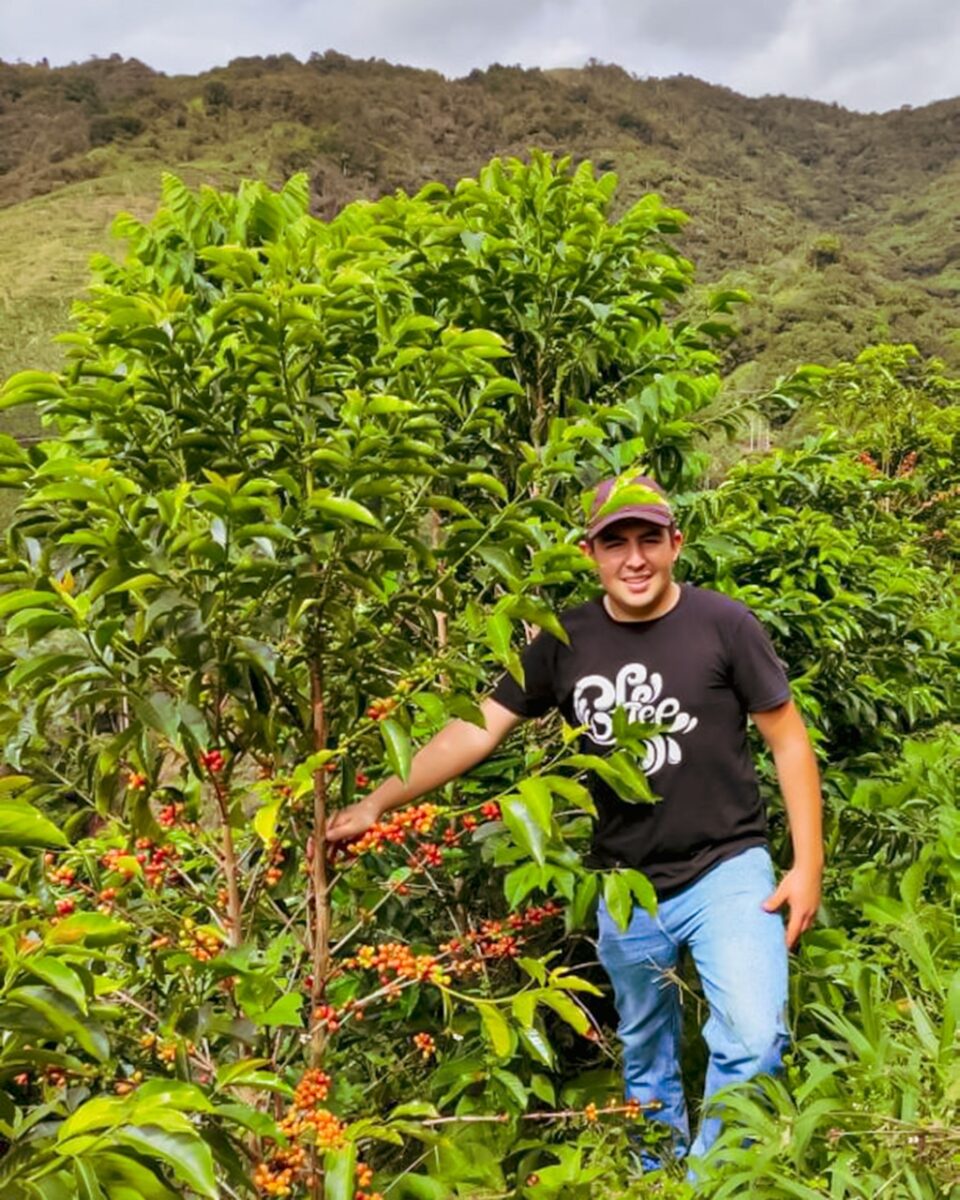
Motivated by Dad, inspired by Mom
The farm has been a part of Jhoan’s life since he was a child. But it was nothing more than a place to sleep or somewhere to hang out. And seeing firsthand the instability of the industry – the family balancing on the brink of bankruptcy when a coffee leaf infestation nearly wiped out the crop, or victim to the price drop brought about by the coffee crisis in the early 2000s – Jhoan had no intention of carrying on the family trade. In fact, seeing how disillusioned his father had become, Jhoan doubted if there even was a future in coffee.
The change came when he was forced to repeat a year in junior high school. His punishment for not keeping up with his studies was hard labor on the family farm. Forcing kids to work all their free hours on the family’s coffee farm was a standard punishment for misbehavior in Huila.
“I hated working on the farm. I wanted to be a car mechanic when I grew up. I was studying, but I was also having fun hanging out with my friends and going to parties. Then when I turned 15, I went through a rebellious stage and schoolwork fell behind. I told my dad I’d accept any punishment, anything but the farm because I knew how much work it would be. He didn’t listen, of course!”
However, after working a year on the farm, Jhoan told his father that he wanted to stay. He went back to school to finish high school, but he knew that the farm was where he wanted to be.
“I thought I’d be bored working on the farm, but I wasn’t. I liked it and it didn’t feel like hard work. There’s something about working the land that appeals to me. Sowing the seeds, watching them grow and bloom, helping life to form – there’s real joy to be found in that process.”
Jhoan’s interest in coffee was also influenced by his mother. In 2006, she came 16th in the Cup of Excellence competition. Though she sadly passed away six years later, Jhoan’s mother was still one of the early believers in the potential of specialty coffee for Colombia.
“My mom was full of curiosity, always into something new and thinking about the next step. She taught me to always look for a different side, not just with coffee but with everything. My mom was against my dad’s way of going for volume over quality. She might not have been an expert on specialty coffee, but she knew that a change was coming in the industry.”
A few years after his mother won the competition, Jhoan found a baseball cap with the COE 2006 logo on it in the back of the closet. When he asked his mother about it she said, “When you find something you enjoy, then you need to give everything you’ve got and learn all you can about it.”
“My mom once told me that all professions are an art form. You can’t become a coffee producer just because you like coffee. Life’s not that easy. When you like something, you need to keep practicing and perfecting, learning all you can about it. And that’s how you make it your job. My mom taught me a precious lesson and I’ll never forget it. It’s got me to where I am today. I get my love of the job from my dad, and my coffee philosophy from my mom. It’s the perfect combination!”
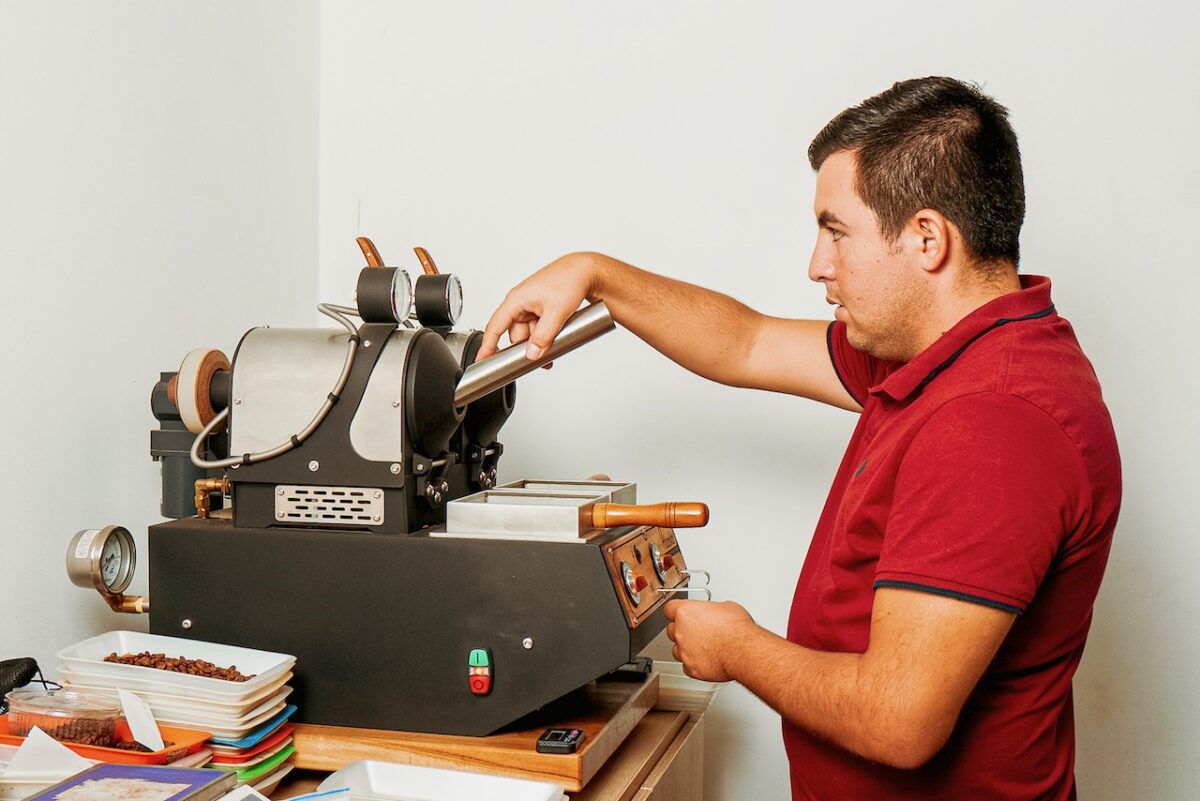
Sharing experiences, pooling knowledge
Following his mother’s advice, Jhoan enrolled in SENA (National Training Service) in the city of Pitalito to study coffee for a year. One of the most surprising things for Jhoan was learning that there were specialists for roasting, cupping, importing, and exporting. While he was there, Jhoan asked questions, took on board feedback and made connections with people in the coffee industry.
“Before SENA, my knowledge of the coffee industry ended with production. Once we’d washed, dried and handed over the beans, I didn’t know what happened to them. I had no idea where I could go to learn about cupping in Colombia.”
After graduating SENA, he took his new found understanding of the industry and returned to the family farm. He decided to examine each step of production from farming to fermentation and processing, and began experimenting with different methods in each lot. He scored an 87 on his first attempt.
“That was when I realized that the main thing holding back producers is not knowing about coffee as a consumer product. So I continued to study cupping for another two years after graduating because I wanted to know about all the different flavors in coffee.”
Jhoan’s curiosity and energy carried him to the 2019 Master Of Coffee competition in South Korea. Normally, a roaster and producer would form a two-person team, but Jhoan decided to represent both roles – and took the top title. Then at the auction held the same day he grabbed the winning bid.
When it comes to the local community, while he might be seen as a leader, his priority is on working together. Every year, Jhoan organizes an annual cupping event to take place after the harvest is in. The event began as a way to bring coffee producers together so they could share experiences about processing techniques. Some producers in Huila are reluctant to share their hard-earned data. But not Jhoan.
“I’m an open book when it comes to coffee production. I share as much as I can with other producers, both my successes and my failures. Hearing what other producers think about our coffee, or getting advice on fermentation, processing, and everything else makes us better at what we do and keeps us all on our toes. It raises the level in Huila, and in Colombia as a whole.”
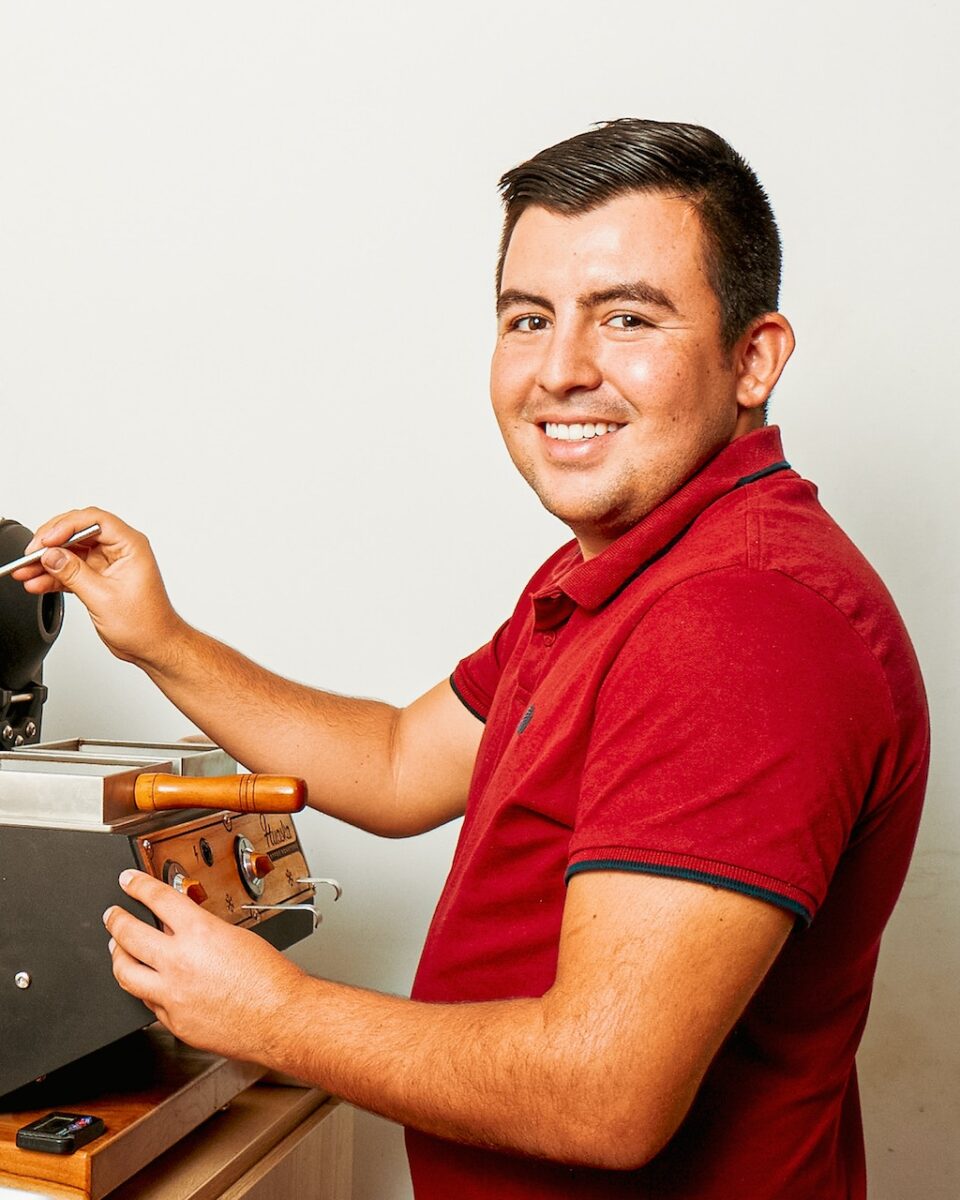
A new type of coffee producer
Jhoan has spent a lot of time learning from his successes and failures to grow a wide variety of different coffees, but his views on the future of coffee remain conservative. Huila is currently facing a shortage of people willing to take over farms.
“A recent survey showed that 50% of producers in Huila could disappear in the next few years. It’s partly caused by wealthy producers shifting to the more profitable industries of construction and transport. They stop coffee production and sell up their land, meaning there’s no farm for anyone to take over. And in more rural locations, producers are giving up, resigned to ending the farm in their generation. They can’t see any financial benefit in coffee and tell their children to find another line of business.”
In Colombia, coffee production is considered the job of unsophisticated backwater yokels. Jhoan often meets younger people who think of producers as poor and the business as unprofitable – mostly because they have seen their parents struggle for so long. Coming from the younger generation, Jhoan can understand where they are coming from. But he sees coffee as something more than just profit: he sees it as a way to connect with the world.
“People come to my farm from all over the world and tell me how good my coffee is. That’s the kind of thing that would make anyone working to improve the process and the product happy. People still see coffee production as a job for poor country folk. But it’s changed. We’re part of a different world now and it’s more sophisticated, more innovative. I want people of my generation to see and understand that.
Each producer puts their passion into learning everything they can about coffee. And as a result, Colombian coffee is known the world over. This helps the world economy and the economy in Colombia. Coffee is my passion. I don’t care if my friends own a huge mansion, or what job they do. What’s important is how they prepare, how much they invest in creating a good process.”
Pierre Fargetton from Cata Export, exporters for Jhoan’s green beans, is another person who has been won over by Jhoan’s passion for his work.
“Jhoan understands that specialty coffee is not just about the score, it’s also about ethics. And we feel the same. We want to buy coffee at a good price, maintain transparency, and try to contribute to the coffee industry as much as possible. That’s why for us it has real meaning working with someone like Jhoan who is completely aligned with our values.”
For Jhoan, coffee is a drink that transports him to another world. His day starts with a cup of coffee and like clockwork, he has a cup every two hours while he works.
“When I drink coffee, I think about the history of coffee, and the people who have been involved in the harvest and the processing. All this information and context is whirling round my head while I drink. It reminds me of all the hard work and sacrifices that have gone into making a cup of coffee.”








